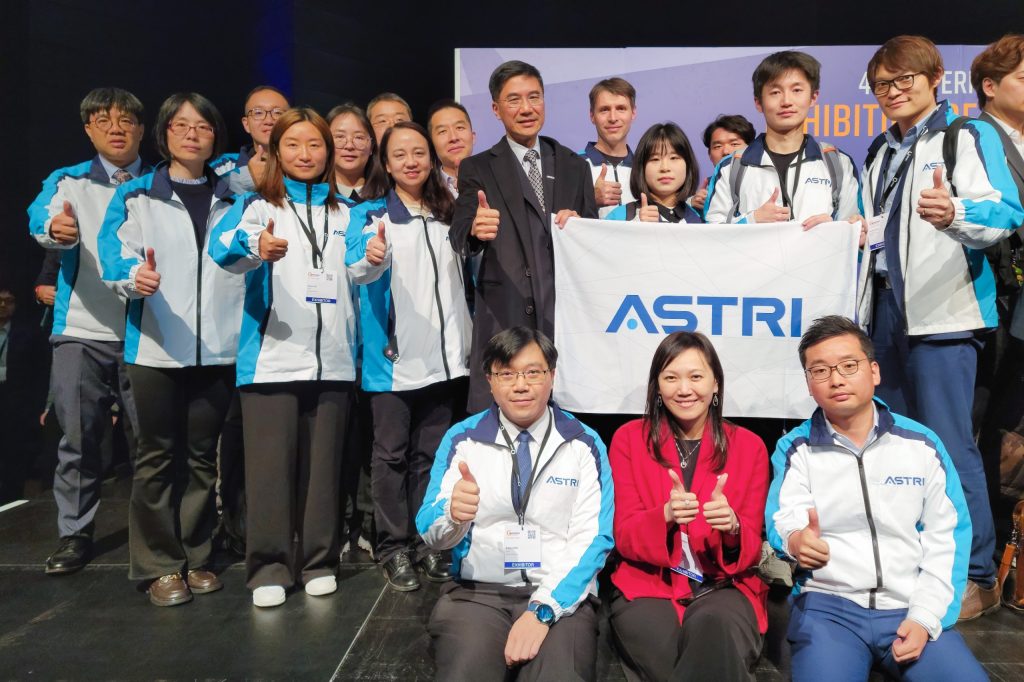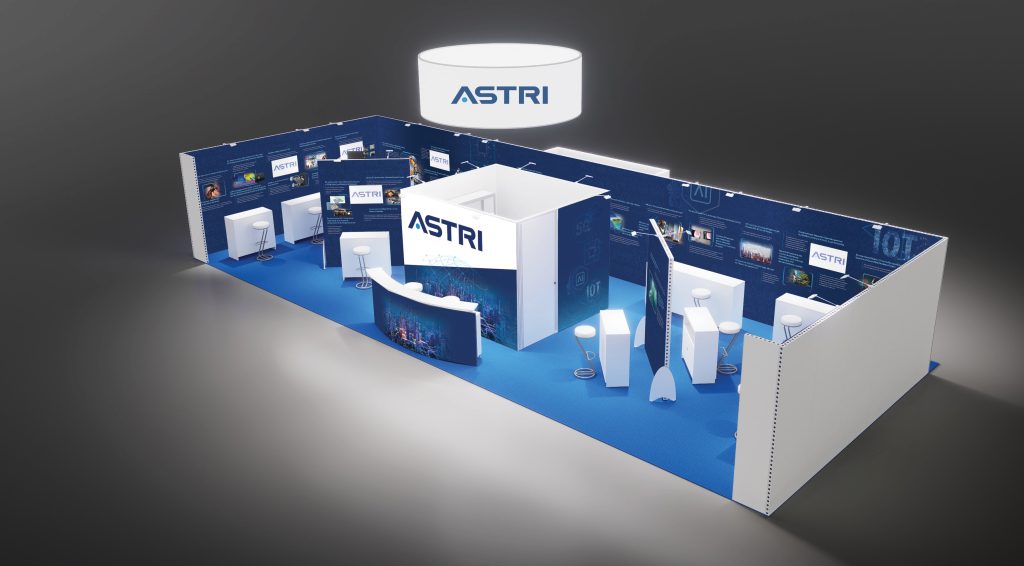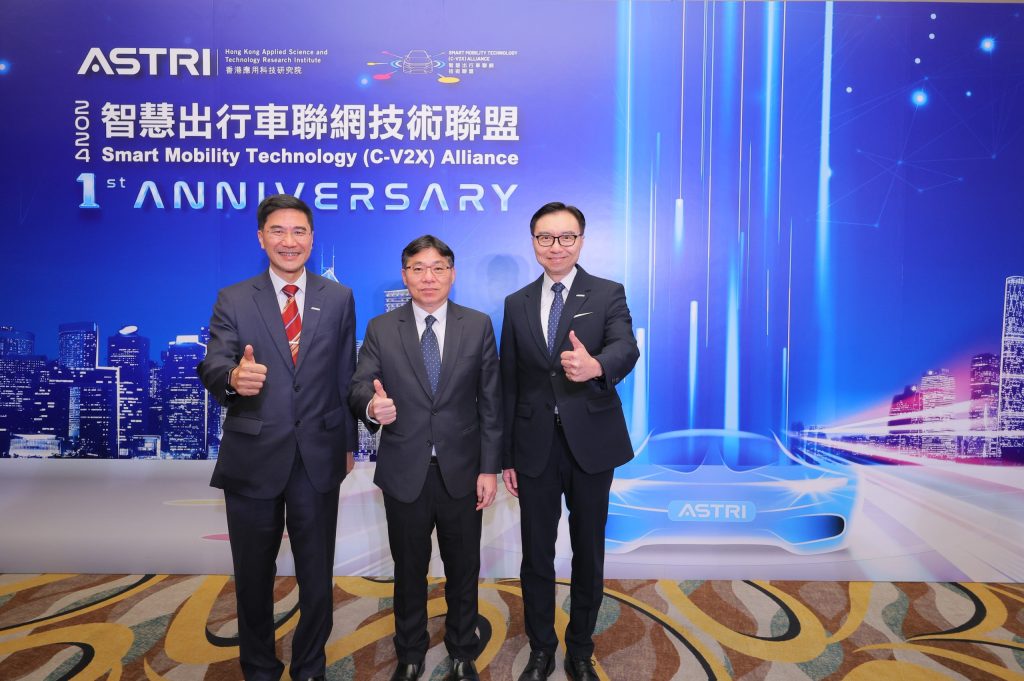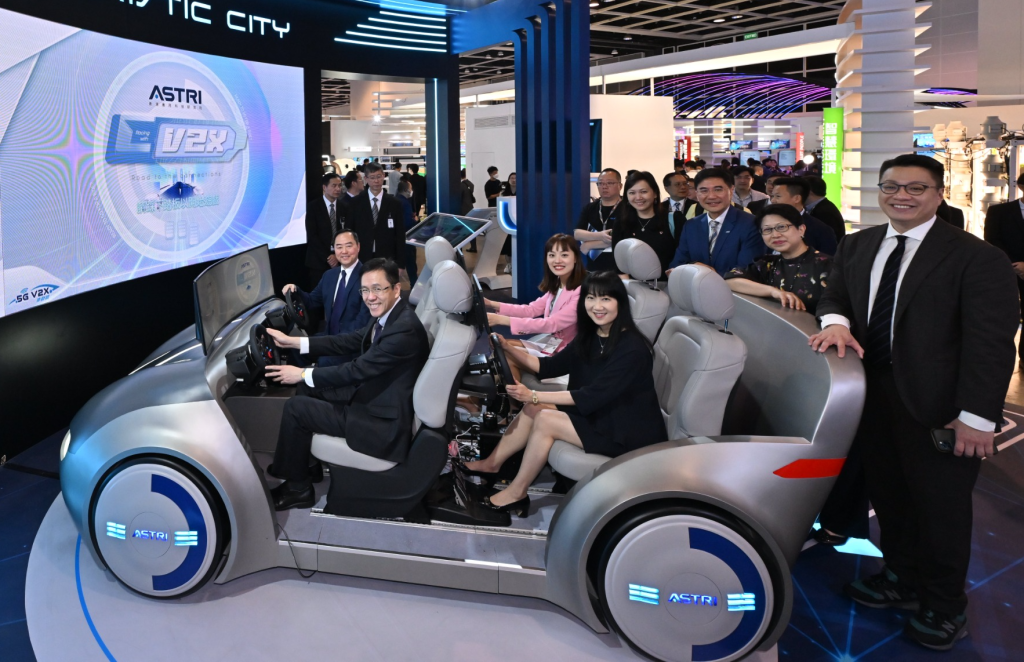[Hong Kong, 4 November, 2022] n-hop technologies Limited, founded by Professor Raymond Yeung, has currently partnered with Hong Kong’s largest government founded R&D company Hong Kong Applied Science and Technology Research Institute (“ASTRI”) to jointly implement and leverage BATS code based solution to enhance the performance of Integrated Access & Backhaul (“IAB”) network deployed in the latest 5G. This can help optimise 5G IAB scenarios, greatly increase network transmission rate, and reduce distortion caused by data loss, which in turn will accelerate the advent of smart cities. This technology commercialisation collaboration among ASTRI, university and local startup is another success case of the cooperation among government, industry, academia, and research institutes. It also echoes with the Government’s policy agenda in 2022 to enhance Hong Kong’s 5G infrastructure by encouraging early deployment of 5G technology in various industries for improving efficiency, productivity and service quality.
BATS is a must for smart cities
Modern people has long been inseparable from mobile network technology in their advanced lifestyle, being actively engaged in online video conferences, watching Korean dramas, smart entertainment devices, shopping and express delivery to mobile app communication and video calls, etc., during which mobile network technology support is necessary for most of the time. However, during the transmission through network, we will encounter severe data loss, leading to intermittent picture, disconnection, “pixelated images” (unsmooth picture) or delay. Therefore, a communication network with low latency and high throughput is becoming increasingly important and crucial to the development of smart cities.
The network coding theory was put forward by Professor Raymond Yeung as early as 2000. It has been offered as postgraduate courses by universities around the globe. Prof. Yeung has received numerous awards for his research contributions. In particular, he was awarded in 2021 the IEEE Richard W. Hamming Medal, one of the highest awards in the electrical engineering discipline, and in 2022 the Claude E. Shannon Award, the highest honor in the field of information theory. After over 10 years of research, Professor Raymond Yeung, Professor Yang Shenghao and their scientific research team have successfully developed the network coding technology BATS, which simplifies the encoding and decoding procedures, and replaces the router with an encoder to send the “credentials” of the information rather than the entire one, making network communication more efficient, reliable, stable and secure. Compared with traditional linear networks, BATS can enhance the transmission rate by over 10 times.
Named n-hop technologies to demonstrate the advantages of BATS
Professor Raymond Yeung, Professor Yang Shenghao and Mr. Stephen Ho Wai-chung are the founders of n-hop technologies. Mr Ho has 38 years of extensive experience in the information and communication technology industry, during which he has served as the Chief Executive Officer of a major corporation in the industry for 18 years who fully promotes the development of information and communication technology. They gave the name n-hop technologies to their company, as the name itself suggests, to imply the pros of BATS: the transmitted information remains intact after passing through a large number of wireless links.
BATS makes 5G technology even more powerful
Leveraging the maturity and popularization of the 5th generation mobile communication technology (“5G”), the application performance of the patented BATS makes 5G technology even more powerful. The current communication technology solutions have their own shortcomings, including the need to dig roads for laying optical fiber networks, which is time-consuming and costly; while wireless communication networks, such as WiFi, LoRa, NB-IoT, etc., have slow data transmission speeds and low efficiency. If BATS is used with the 5G IAB application mode, it can be applied to 5G base station networks or other broadband wireless backhaul networks, in which a few 5G base stations are connected to the 5G main network by optical fibers, information can be inter-exchanged among other 5G base stations by leveraging the functional advantages of BATS. Thus, a 5G communication network with low latency, high transmission efficiency, and improved economic benefits can be established.
Cross-collaboration among government, industry, academia and research institutes to promote Hong Kong R&D results transfer
The Government has been promoting cooperation among the government, industry, academic and research sectors, and has established various funding schemes and platforms under the Innovation and Technology Fund (ITF) for cooperation. Benefited from the Government’s funding schemes under ITF, including the “Research Talent Hub (RTH)”, “Technology Start-up Support Scheme for Universities (TSSSU)”, etc., the collaboration between ASTRI and n-hop technologies deepens the integration of innovations and creates synergy through leveraging ASTRI’s cutting-edge 5G solutions and the patented BATS technology of n-hop technologies and The Chinese University of Hong Kong, achieving the ultimate goal of technology transfer.
As a pioneer in the R&D of 5G technology, ASTRI has partnered with n-hop technologies to improve communication technology. Ir. Sunny Lee, Chairman of ASTRI, said: “Policy Address 2022 has addressed to develop 5G infrastructure and encourage early deployment of 5G technology across different industries to accommodate smart city application. ASTRI fully supports the initiative and facilitates the government to strengthen Hong Kong as a regional communications hub. We are actively collaborating with industry partners like n-hop technologies to develop innovative 5G base station solutions, including integrating BATS coding technologies, and enable commercialisation of ‘Made in Hong Kong’ technologies including ASTRI and university R&D results, and promote more cooperation among ASTRI, Hong Kong universities, and local startups to thrive the I&T ecosystem.”
Dr. Denis Yip, Chief Executive Officer of ASTRI, feels particularly delighted with this collaboration: “As an R&D Centre for Information and Communications Technologies designated by the Innovation and Technology Commission, ASTRI has spared no effort in the development of communications technology in Hong Kong over the years. By leveraging our ability to master 5G technology and to build 5G base stations, and incorporating the network coding technology BATS developed by Professor Raymond Yeung, we believe that Hong Kong will lead the global development and become internationally renowned in the related fields in the near future. This is also in line with ASTRI’s vision to fully support local universities in technology commercialisation. Transitioning the technologies from the research lab to the marketplace is crucial for our Smart City development and betterment where innovations will be turned into real services and products that will eventually satisfy our needs. With ASTRI’s 22-year experience in commercialisation, we will definitely add value and confidence to our university projects.”
Mr. Stephen Ho said: “We are very excited to have the opportunity to work with ASTRI, a world class application research institute to work towards applying our BATS technology into the 5G Integrated Access and Backhaul (IAB) cellular Standard. The BATS enabled IAB standard will be instrumental for 5G base station densification, it not only provides flexibility and rapid deployment capability of base stations, the use of multi-hop wireless backhaul also enable mobile service operators to save substantial cost of implementing and/or leasing fiber connectivity. The technology facilitates the realization of densification, and 5G eco-system players will be able to introduce more innovative applications that have insatiable demand on bandwidth capacity soon”.
Professor Raymond Yeung expressed that: “I am delighted to see the collaboration with ASTRI, which has one of the strongest research teams on 5G. I believe that the ASTRI and n-hop teams complement each other very well. In this project, we will jointly develop a new technology based upon the award-winning research of my team, namely network coding, that aims to revolutionize the information communication protocol in 5G IAB.”
BATS communication technology improves our living and save our lives
So far, there are 11 BATS-related patented technologies with a wide range of applications, such as the application of BATS to satellite communications to cooperate with the development of aerospace technology; the application of the technology to the underwater sonar transmission network to monitor the operation of underwater infrastructure projects so as to overcome barriers in ocean data transmission; building an aerial wireless network in remote mountainous areas using hot air balloons, or using an aerial camera in disaster areas to transmit on-site data in real time so as to assist in emergency rescue. Meanwhile, Professor Raymond Yeung and his team are preparing to apply to the Institute of Electrical and Electronics Engineers (“IEEE”), an international authoritative organization for engineering, to include BATS in the coding standard for international communication, hoping to further popularize the application of BATS and benefit the society.

(From left) Dr. Denis Yip, Chief Executive Officer of ASTRI, Ir. Sunny Lee, Chairman of ASTRI,
Prof. Raymond Yeung, Co-founder & Director, n-hop technologies, Mr. Stephen Ho, Co-founder & CEO, n-hop technologies
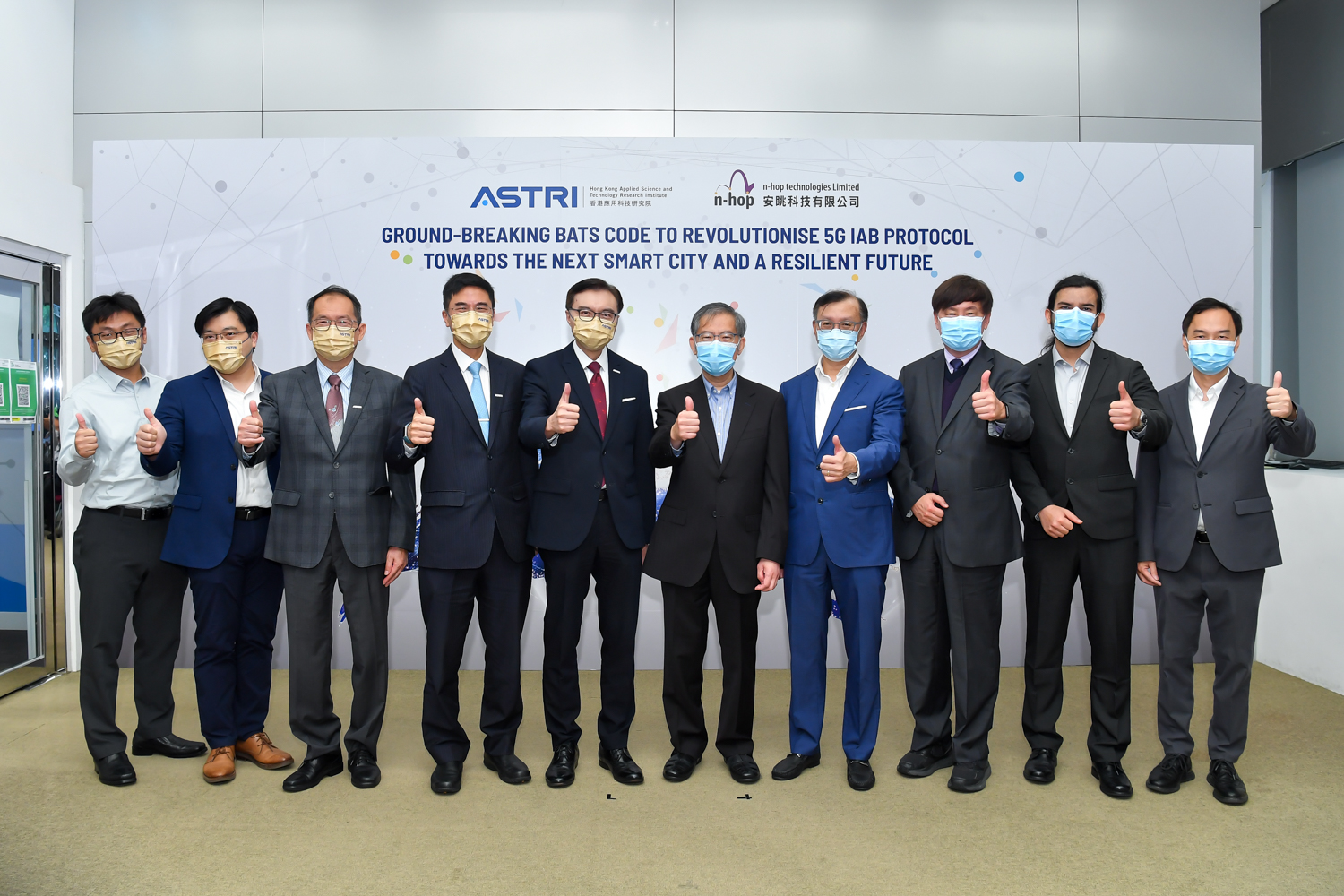
(From left) Mr. Walter Tsui, Principle Engineer, Communications Technologies of ASTRI,
Dr. Eddy Chiu, Director, Communications Technologies of ASTRI, Dr. Justin Chuang, Vice President, Communications Technologies of ASTRI, Dr. Denis Yip, Chief Executive Officer of ASTRI,
Ir. Sunny Lee, Chairman of ASTRI, Prof. Raymond Yeung, Co-founder & Director, n-hop technologies,
Mr. Stephen Ho, Co-founder & CEO, n-hop technologies, Prof. John Zao, Co-founder & Senior Consultant, n-hop technologies, Dr. Mehrdad Tahernia, CTO, n-hop technologies, Mr. Kent Hou, Director of Business Development, n-hop technologies
Related News
